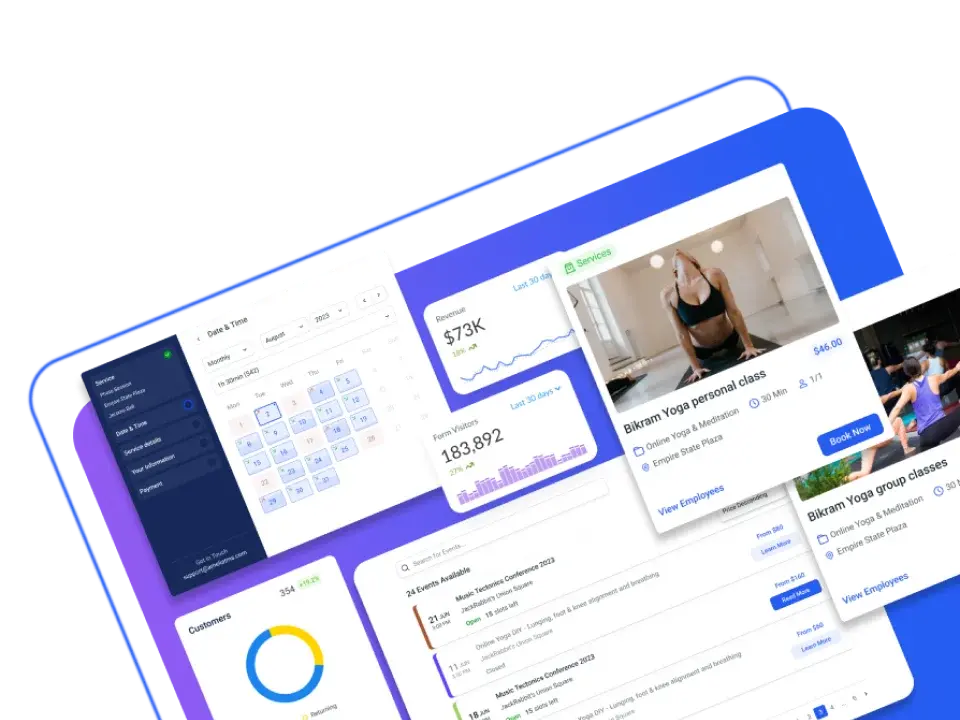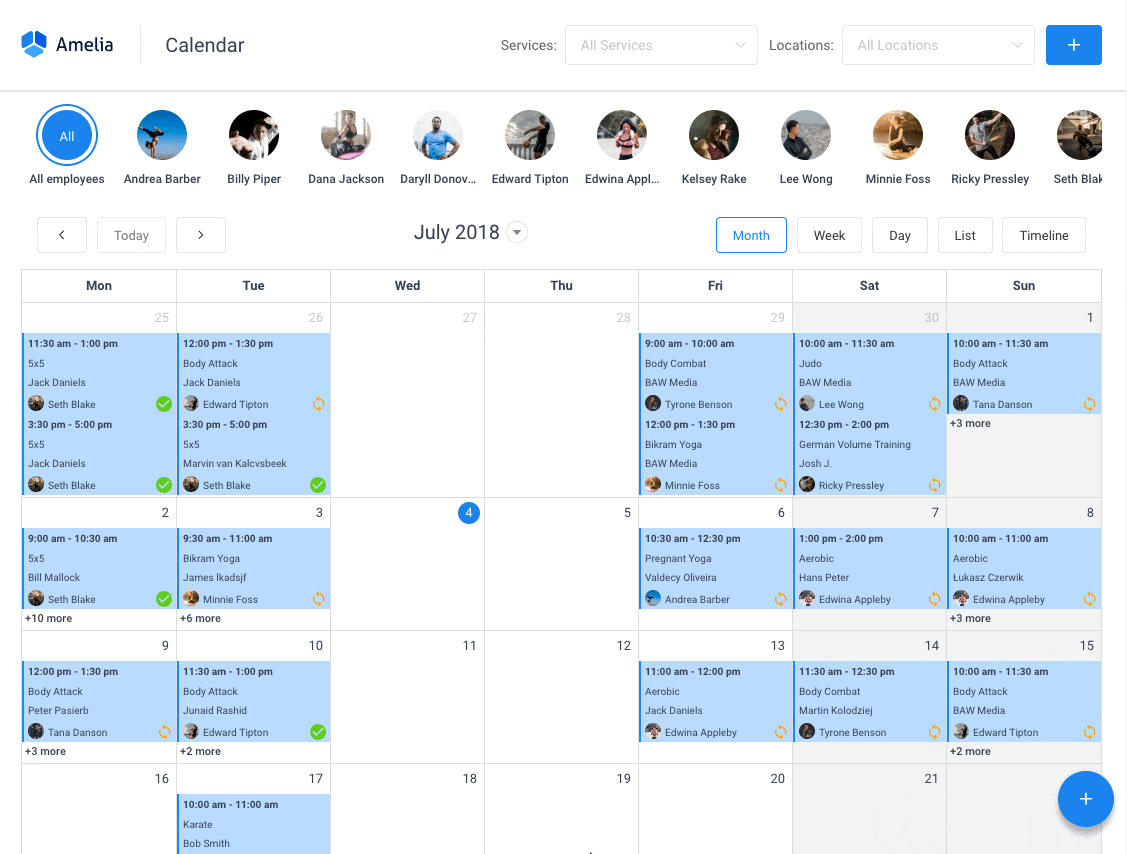If you want to know how to get sponsors for an event, you’ve come to the right place. There are plenty of people who need to draw potential sponsors for their corporate gatherings.
When you host corporate meetings and similar events, you’ll give your business the attention it needs. Besides boosting your brand, you’ll be widening your reach.
Hence, it’s not a surprise that so many brands are looking for corporate sponsorships to help them launch their events. Although this is a challenging task, it brings many benefits. But how do you get sponsors for an event? How do you contact potential sponsors? How do you provide them with a valuable proposal? How do you tackle the obstacles that may arise?
At this point, it becomes essential that you understand all the details about event sponsorship. If you want your future events to be a success, take a look at this guide. This information will certainly be useful for event organizers.
First Things First—Do You Need Event Sponsors?
Event sponsorship can be a great way to get new business partners. Large companies usually have a budget allocated for this purpose. Starting early is important. It is a good idea to give out free gifts, like food donations, goodie bags, and similar elements.
Creativity is a big plus when it comes to getting sponsorships, but remember that you must add value to your event so that it looks more appealing to potential sponsors.
The following set of questions might help you plan a strategy, especially for large projects or public events that may be significant to your corporation:
- Are you hosting a high-profile or large event? Will it feature reputable guests or speakers?
- What are you planning to achieve through this event? Are your goals impossible to achieve without an additional cash flow to your budget?
- Do you want to expand your brand awareness or increase your client database?
- Will you need help with any major aspect of your event, like transportation, catering, venue, or accommodation.
- Are you throwing an event that is one-of-a-kind? Are you looking to build credibility in your industry?
Event sponsorships are not only useful for raising funds. Any event planner knows that sponsors bring many other advantages, like powerful marketing. The following are some of the opportunities that your event sponsors might bring:
- Improvement of your brand’s image
- Increase in sales
- Building or enhancing brand awareness
In other words, a sponsorship agreement is a smart strategy for every business. Even if you don’t achieve all the benefits listed above, the results will be impressive.
How to Get Sponsors for an Event—Consider Different Types of Sponsorship Proposals
You can choose from different types of event sponsorships:
- Media sponsorship. When you have media sponsors on your side, you gain major publicity. Their job is to invest in media coverage, and this includes your event. Make it appear in newspapers, social media channels, and TV commercials.
- Financial sponsorship. If you need financial support, this is the right strategy. Your event sponsor will give you money in exchange for a place in your event. This can be a branded booth, a display of the sponsor’s logo, a message from the sponsor, or hosting products.
- In-kind sponsorship. In-kind sponsorship is about getting products or services. Thus, the event sponsors provide elements such as t-shirts, water, free samples, or even hotel rooms.
- Promotional sponsorship. With this strategy, you leverage the popularity of a particular persona. This can be a public person or a celebrity.
- Prize sponsorship. Provide badges, prizes, and other recognitions to your event attendees. This is a great way to engage your target audience.
Finding Sponsors—Which Companies Should I Contact?
Once you’ve decided which type of sponsor you need, it’s time you reach out to them. Where should you start? Event sponsorship is a delicate subject, and you must consider your reputation. A sponsor’s reputation can benefit or harm your event, and this is why you need to choose carefully.
A good place to start is by finding sponsors that understand the value of marketing in a sponsorship proposal. Once you find the right candidate, you’ll have to convince them that their investment will be worth every penny.
It’s also a good idea to find sponsors whose target audience matches yours. If you share the same demographics and interests, you can help each other. Although it’s impossible to find an exact match, choose the ones with whom you share key areas. Event planners must think about what areas of their projects they want to highlight. This will help them make the right decision.
You might also want to focus on the event ROI. Many sponsors want to see their names at a prestigious event. However, to get the most out of the partnership they must understand that cooperation works both ways.
So, if you’re still wondering how to get sponsors for an event, consider these tips to find the right ones.
How to Get Sponsors for an Event—Find Sponsors
Finding sponsors for an event may seem like a hassle. However, it’s not so complicated if you know where to look. Many companies are happy to take part in events that will put them right in front of their audience.
In this aspect, make use of your creativity. Also, there are some digital tools that you can use.
How to Get Sponsors for an Event with Digital Tools
In many cases, event organizers are looking for sponsors, and sponsors are looking for events where they can participate. Luckily, some virtual tools help these parties find each other.
LookingForSponsor

This is an ideal solution for every event organizer and content creator. LookingForSponsor offers a great solution that makes the searching processes easier. It includes a curated database of companies that want a sponsor.
Sponseasy
Sponseasy is a tool that will make your life easier. Its drag-and-drop interface will help you design your event sponsorship desk. You can also use any of its templates.
SponsorMyEvent

A powerful search engine. Popular brands like TEDx and Forbes use SponsorMyEvent. This is proof of its reliability.
SponsorPitch

Thanks to its filters and searching features, SponsorPitch helps you find the right fit. Connect with highly-qualified sponsors and dismiss the ones that aren’t a good match.
Write Great Emails and Engage Prospective Sponsors for an Event
Pay special attention to how you approach companies for an event sponsorship proposal. You mustn’t look needy or ask too much, especially during the first contact.
The best subject line is one that gives the right context as to why you are contacting this company. For example, if you’ve made contact before, and you made a favorable impression, bring it up. In other words, use what you have already achieved to attract potential event sponsors.
Thus, the subject line “We met at “X” event and would like to connect” is a great start. Without even knowing it, you’ll be providing context to your message and setting the ground for further communication.
Sell more event tickets with the right tool for the job
Staying organized has never been easier.
You can now manage your business and grow your brand with a single, powerful WordPress booking plugin that keeps all of your appointments or event bookings in line, your clients organized and your business booming.
Amelia is the perfect WordPress events plugin for business owners who need to streamline their booking experience both for their staff and their clients.
Amelia handles everything for you, even sending automated email or SMS reminders to your clients. No-shows? Not anymore!
The Amelia WordPress booking plugin adapts to different industries for a blissful online booking experience and employee management.
Want to know more? Check out Amelia’s awesome features to see what you are missing.
Be Specific about Your Event Goals
Even if you’re looking for financial sponsorship, you need to choose the right partner. Not just any sponsor will do. If you need to book a sought-after hotel venue, then don’t go looking for media sponsors.
On the other hand, if you have several goals, a combination of multiple sponsors might be the solution. Let’s illustrate this with an example. Hypothetically, you have to host an event for which you need solid PR and where the best speakers in the industry will participate. A good solution might be to get a promotional sponsor and get VIP hotel suites for your speakers.
Find Companies that Sponsored Similar Events
Create a list of potential sponsors for your event. Include those that participated in similar events. By researching the sponsors that have a history of collaborating with your type of projects you have a better shot of finding the right one.
Also, find out what previous organizers provided those sponsors, and include this in your plan. Keep in mind that these companies invested in event sponsorship packages before and are likely to do it again.
All of this can constitute a great strategy to pitch to your sponsors more easily.
Find Corporations that Have the Proper Resources
Remember to pitch to companies that are able to afford event sponsorships. Even if they are interested in partnering with you, they must have the resources to do it. You should be able to trust your sponsors and feel comfortable about the agreement as well.
Next, you’ll find some advice on how to choose the right sponsors. Remember that they must be interested, related, and capable.
- Find companies with sufficient budget
- It helps if the company has a marketing/advertising department
- Choose companies through referrals
Avoid wasting time, and go after the brands that will be interested in your type of event. Moreover, make sure they are solvent enough.
Keep Your Assets in Mind
Sponsors are looking for benefits in exchange for their collaboration. Generally, this goes hand-in-hand with their marketing strategies. After all, no one would spend thousands of dollars without expecting something in return.
So, ask yourself what you can offer them. Your proposal must help their marketing strategy. In other words, offer them more than a few extra clicks on their social media posts.
If your audience is similar when it comes to demographics, you can offer them psychographics and analytics reports. Thus, you’ll make excellent use of your data. Another way of providing value is by granting them a VIP membership. This might work well as a cross-promotion strategy.
All in all, offer them incentives that they can’t find in your competitors.
Know Your Strengths
The best way to get others to invest in your project is to know it very well. Make sure you understand what your event is about and outline a plan. Thus, your sponsorship proposal must include:
- Vision and event goals
- Who will be the event attendees
- What makes your event special over similar ones
You have to understand the key features that make your event one-of-a-kind, like keynote speakers, special guests, and presentations that might attract sponsors. The location is also important. Include factors that will attract more traffic to your event.
At this point, a simple bullet point is not enough. Do your research and include statistics. All in all, show them what they will gain by supporting you.
Use Your Event Organizer Network
Remember that you’re not the first person to look for event sponsorships. Others have done it before you. Your event network is a valuable tool that you must not overlook.
Don’t be afraid to reach out and consult with experts. As long as they’re not direct competitors, this is a great approach. Besides getting valuable advice, you might enhance your database of contacts.
Experience is an important part of the process, so don’t hesitate to ask for help. Build your know-how and learn from fellow organizers.
Offer Incentives
Make sure your sponsors know what they will get from their collaboration with you. Every relationship is based on give-and-take, and sponsoring is no exception.
Make your proposal more interesting with the following ideas:
- Offer a free booth at exhibitions and trade shows.
- Place the sponsor’s logo on promotional flyers and banners.
- Place a QR code (created using a QR code generator) that points to the sponsor’s website or a promotional link.
- Mention the sponsor’s brand in newsletters, social media posts, and blog entries.
- Provide discounts or free passes to customers that buy the sponsor’s product. An affiliate software will allow you to generate discount links and track sales over these.
The bottom line is that you have to be willing to give more than you take. With this approach, you show professionalism and reliability.
Target a Local Sponsor
Sometimes, you don’t have to look very far. In most cases, you’ll find that the best sponsors come from your local community. Local restaurants and other brands may already know you by reputation. Naturally, they will be interested in keeping the local market active. In other words, they are likely to be the best candidates.
If you want to get a local sponsor, follow these guidelines:
- Target companies with a large presence in your area.
- Organize your strategy to include your shared interests.
- Be clear about the benefits that you offer.
- Keep an open mind. While you may be looking for financial support, the counterpart may need an in-kind sponsorship. Don’t close yourself up because their proposal can open a new perspective for you.
- Once you secure the deal, make sure to build upon this relationship.
Use Data and Figures
If you promote your event as a vehicle for advertising and prospect finding, you have to support it with data. Surely your sponsors will be interested in your figures and reports.
Provide performance reports on previous events and estimate the number of attendees. Feel free to share the registration data because this will provide a solid background to your proposal.
Specific information will also be useful. Includes click-through and sit-through rates and every detail that you can extract from your report. Such a strategy works both for in-person and virtual events.
The Importance of Timing
Some companies do event sponsorships during a special season. Moreover, their event budget is based on the performance achieved in the previous year. The best time for a sponsorship agreement depends on several factors: the economy, the industry, and the company’s ROI.
Even if a company is willing to sponsor events all year round, they may have limited budgets during some months. Fall and summer, for instance, are great seasons for hosting events.
On the other hand, other parties may not be sponsoring during these seasons because they are saving for their own events. In these cases, they might be willing to support you during the winter, when their activities are reduced.
So, when you target a company, make sure you know its timing. Also, this can be a good indicator of when to schedule your future events.
Offer Different Sponsorship Packages
Make sure your proposal includes many options. There should be different tiers, providing detailed information about them. Potential event sponsors should know exactly how much they need to invest and what they will get in return.
For instance, if you need 20,000 dollars to throw the event, you can accept a smaller amount from your sponsor. Your event sponsorship packages must include detailed information for each option. Use the following examples as a model:
- 20,000 dollars. This package includes the sponsor’s logo on all your marketing items, a sponsor’s ad on your digital signature, and a promotion of the sponsor’s latest product during the event.
- 10,000 dollars. Offer only two of the above-mentioned benefits.
- 5,000 dollars. Offer only one of the benefits.
Naturally, if you choose this approach, you’ll need to find many sponsors to cover one event.
Reach the Right People
At the end of the day, there will only be a few sponsors that accept your proposal. Keep this in mind, and make sure to reach the right contacts.
Your target sponsor can have different titles, but there are a few that fit into almost every strategy. Looking for corporate sponsorship on LinkedIn is a great idea. Search for the following titles:
- Sales
- Brand
- Sponsorship
- Marketing
- Business development
- Product development
- Communication
It always helps if you add a few lines. Request that, in case you reach the wrong person, they provide you with the right contact within the company. You’ll find that most people are happy to respond.
Leveraging Partnerships from Previous Events and Getting New Sponsors
If you want to contact sponsors in the future, make sure you keep in touch after the event. A good option is to segment your email database. Use an email verification tool to ensure your emails hit the recipient’s inboxes rather than landing in their spam. Thus, you can write personalized messages to the company sponsor that promoted your latest event.
Let them know how much money you raised and how this helps your community. Use tags in your social media posts, and give credit to your sponsors. This is the best way to make your relationship visible thus creating new sponsorship opportunities.
This engagement must continue all year round. Keep inviting them to events, and ask them to follow you on your social media platforms. You’ll find that this is an effective way to create a sponsor pool and get new donors.
FAQs about getting sponsors for an event
1. What are the key steps to take when looking for sponsors for an event?
Identifying the target audience, creating a sponsorship package, researching potential sponsors, coming up with a sponsorship proposal, negotiating the conditions of the sponsorship, and creating a post-event follow-up plan are the essential stages to take when seeking for sponsors for an event. You may increase your chances of finding the ideal sponsors for your event by doing these actions.
2. How can I identify potential sponsors that align with the event’s theme and audience?
Search for businesses or brands that naturally relate to the theme of your event or the target demographic in order to find potential sponsors that would fit these criteria.
Look for businesses that stand to gain from supporting your event and that have a track record of supporting occasions similar to it. Make contact with businesses or brands you believe might be a good fit and offer them a compelling sponsorship.
3. What should be included in a sponsorship proposal to make it more attractive to potential sponsors?
Include information about the event, such as the time, place, target market, and theme, in your sponsorship proposal. The advantages of sponsorship, such as branding possibilities, visibility in the media, and other value-added advantages, should also be described.
Each prospective sponsor should receive a pitch that is unique to them, emphasizing the advantages of sponsorship for their company.
4. How do I determine the appropriate level of sponsorship and corresponding benefits for each sponsor?
Each sponsor’s marketing goals and spending limit will determine the proper level of sponsorship and associated rewards.
Outline the various sponsorship tiers and the benefits they offer first. Work with potential sponsors to ascertain which level best suits their requirements and how the rewards might be tailored to coincide with their goals.
5. How can I negotiate with sponsors effectively to ensure mutual benefits are achieved?
Focus on developing a rapport with sponsors and learning about their goals in order to bargain with them effectively. Be open to inventive solutions that are advantageous to both parties and honest about what you can provide. Think of providing participants with extra benefits in addition to standard branding possibilities, such as speaking engagements or special access. Try to reach a win-win agreement while negotiating in good faith.
6. What are some alternative ways to offer value to sponsors beyond traditional branding opportunities?
delivering speaking engagements, unique access to guests, holding VIP events, and delivering sponsored material or prizes are other ways to provide value to sponsors in addition to typical branding opportunities.
To extend the sponsorship’s reach beyond the event itself, you might look into social media activations like influencer partnerships or branded content.
7. How do I measure the return on investment for sponsors and report on the success of their sponsorship?
Monitor data including social media engagement, website traffic, lead generation, and sales to gauge the return on investment for sponsors.
Provide sponsors with regular updates and a post-event report that focuses on the impact of their contribution. To get input from attendees and sponsors and utilize it to better future events, think about doing a post-event survey.
8. What are some common mistakes to avoid when seeking sponsors for an event?
When looking for sponsors for an event, it’s common to make mistakes like not doing enough research on potential partners, writing generic sponsorship proposals, providing benefits that don’t fit the goals of the sponsor, and not following up with partners after the event.
Establish open communication channels throughout the sponsorship process and take the time to design unique bids for each sponsor to avoid making these errors.
9. How can social media be leveraged to attract potential sponsors and showcase past sponsorship success?
By promoting the reach and engagement of your event’s social media platforms, you may use social media to draw in potential sponsors.
Use social media to promote the event and its sponsors by showcasing previous sponsorship successes, sharing endorsements from grateful sponsors, and developing branded content. Using websites like Twitter or LinkedIn, you may interact with potential sponsors and respond to their queries immediately.
10. How do I ensure a positive ongoing relationship with sponsors beyond the event itself?
Follow up with sponsors following the event and offer a post-event report that highlights the success of their sponsorship in order to ensure a positive ongoing connection with them beyond the event itself.
Maintain communication with sponsors via social media and email newsletters and provide them with chances to take part in upcoming events.
As a method to establish a long-lasting relationship, think about holding a sponsor gratitude event or providing unique access to your audience. In order to enhance the sponsorship experience and guarantee a positive ongoing connection, regular contact with sponsors and ask for feedback.
Final Thoughts on How to Get Sponsors for an Event
Getting sponsors is a challenging task, but it brings great rewards. Also, the process can be more interesting than you expected. One of the key aspects is to create a valuable offer. If you are wondering how to get sponsors for an event, the golden rule is “provide value”.
Reach out to the right people, and do it with plenty of time ahead. Consider these guidelines, and get the support you need to host your events.
If you enjoyed reading this article about how to get sponsors for an event, you should check out this one with event WordPress themes.
We also wrote about a few related subjects like setting up a WooCommerce events calendar, event proposal template examples, event planning tips, marketing strategies for ticket sales maximization, hybrid event ideas, and event management skills.
Not only that, but we also created articles about virtual event ideas, event statistics, tech conferences, and the most-watched sporting event.



